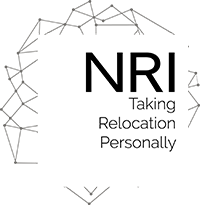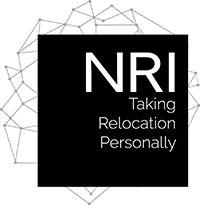How much should your company spend on an employee or executive relocation package? The answer is difficult because there are no one-size-fits-all relocation expenses. The required amount for a typical relocation bonus or company relocation package depends on dozens of variables, including the origin and destination of the move, the employee’s family, role seniority, and countless other factors.
However, companies must answer more than just ‘How much does relocation cost?’ They also must consider the hidden prices. What will it cost the company if an employee refuses to relocate, rejects a role, or leaves?
We have calculated corporate relocation costs for hundreds of companies. Here are the factors businesses must evaluate while determining the budget for employee relocation programs.
How to Budget A Corporate Relocation Package
Handing out a typical relocation bonus isn’t the most cost-effective or successful way to handle employee moving benefits. Instead, organizations should cater corporate relocation programs to individual employee needs.
Analyzing and tailoring relocation expenses optimizes recruiting, minimizes turnover, and reduces wasteful benefits spending.
Many businesses outsource this process to a corporate relocation company. However, if your organization is just evaluating a company relocation package, here are some ways to determine the right amount to spend.
The first step is to consider your company’s typical employee relocation scenarios. These include:
- Common origins and destinations
- Renter employees vs. homeowner employees
- Various employee home and family sizes
- Employee seniority levels, such as entry-level, employee, management, and executive
Businesses must evaluate these scenarios for each of the common relocation vendors, including:
- Household goods moving
- Real estate
- Travel expenses
- Global mobility services
- Other typical relocation allowances for miscellaneous needs
These factors are why the average relocation cost is so variable. Contact our consultants if you need assistance estimating your company’s relocation costs.
Calculate the True Cost of Relocation
The most important question to consider when estimating how much to invest in relocation is related to the value of retaining key talent within your organization. When calculating a corporate relocation program investment, companies should ask, “What is it worth to attract and keep top performers?”
Cost Of Losing Key Staff
Management and HR staff typically focus on easily quantifiable, up-front corporate relocation expenses. Companies rarely consider the cost of losing key talent. However, HR should base all other calculations on this risk.
If key talent refuses to relocate or chooses to depart the company, the organization must face additional expenditures, including:
- Decreased productivity for the employee’s entire team
- Gaps in institutional knowledge
- Disruption to client and customer relationships
- Loss of intellectual property and human assets
- Risk of key talent bringing their expertise to a competitor (especially if the employee did not sign a non-compete clause at the time of original hire)
- Potentially bad publicity if high-profile company executives leave
- Loss of company and stockholder morale following the loss of leadership
- Other tangible costs of losing key staff
The costs of losing company leaders won’t be on the benefits budget balance sheet, but this hidden cost will far exceed the expense of a full-service relocation package.
Don’t forget; these expenses are not quantifiable in typical accounting terms, so they cannot be considered tax-deductible like other corporate relocation expenses or business losses.
Cost of Hiring & Training New Employees
According to SHRM, the direct cost of hiring and training a replacement is about half the role’s annual salary. Furthermore, the overall loss to the company can be up to 2x the employee’s yearly payment. These expenses are due to:
- Recruitment expenses, especially if the organization needs to look outside its region for talent
- Resources for onboarding and training
- Loss of productivity during the transition for both the role and all departments impacted by the role
Cost of Losing a Candidate
Recruiters risk losing A-player candidates if the company relocation package does not entice them to leave their current position or select the job over your competitor’s. This threat is why benchmarking is critical to the relocation budgeting process.
Benchmark the Average Cost to Relocate An Employee
A relocation package is vital to an employee or candidate’s evaluation of a company’s compensation and benefits versus their competitors. Organizations should benchmark their average relocation bonuses and packages to stay updated on industry standards, identify gaps in their offerings, and make informed decisions to enhance their relocation packages.
To perform a relocation benefits analysis, identify industry peers that operate in the same talent pool or geographical region. Research their relocation packages, including:
- Financial assistance
- Household goods moving assistance
- Housing provisions
- Spouse and family support
- Transportation arrangements
- Handling of tax implications
- Visa sponsorship
- Tiers
- Policies
- Any additional perks
Compare the data to determine your company’s standing and identify areas for improvement.
Consider outsourcing this task to an external relocation consultant to expedite this process and access industry-wide data.
By understanding what competitors are providing, companies can tailor their packages to meet the evolving needs of employees and better understand the appropriate amount to spend on relocation packages.
How to Reduce Corporate Relocation Expenses
Companies can efficiently manage relocation program costs with proper planning and design. Use these strategies to decrease total relocation expenses:
1. Tailor Relocation Expenses to Employee Needs
Have a thorough understanding of employees’ needs and preferences at each stage of their careers. Customizing a relocation program to the services and benefits employees value most allows organizations to prioritize spending and reduce budgetary waste.
2. Utilize Company Relocation Package Tiers
The average relocation bonus amount will have a different ROI for each type of employee. Allocate more relocation program budget to the scenarios where the relocation package will significantly impact employee retention and acquisition. Also, spend more when employees add more value to the business. Then, scale back benefits for less crucial employee relocations.
3. Leveraging a Corporate Relocation Company’s Expertise
Tracking and reducing costs is a good employee relocation provider’s priority. Working with a corporate relocation company gives organizations access to better vendor rates and economies of scale. The provider will also continually monitor and manage relocation expenses to find areas to downsize costs.
Proper planning and design help companies efficiently manage relocation program expenditures. It’s crucial to design a relocation program that fits and compliments your corporate culture while also meeting the major needs of your relocating employees.
Average Corporate Relocation Costs
According to a Worldwide ERC® study, the average cost to relocate an employee renting their home is $24,000. Meanwhile, the average relocation costs for homeowner employees are $97,000.
The range for average relocation expenses can differ by tens of thousands of dollars. These typical relocation bonuses or costs do not even account for the significant cost variances by relocation distance or the increased expense when global mobility services are required.
Typical Relocation Bonus For Entry-Level Employees
An entry-level employee will most likely be a renter, have fewer relocation needs for their family, and usually requires less compensation. Organizations are also more likely to utilize a lump sum relocation bonus amount for this type of employee relocation. Therefore, entry-level employees’ typical relocation bonus or package will average around $10,000-$30,000.
Average Relocation Expenses For Executive Relocation Packages
Executive relocation packages are examples of the most expensive types of employee relocation. These senior employees’ families typically require more care. Executives are also almost always homeowners, automatically increasing the average spend per relocation. Consequently, companies should allocate a greater portion of the relocation benefits budget to attracting and retaining this high-value talent.
Therefore, the average executive relocation package is usually greater than $80,000. The upper limit of executive relocation budgets will greatly vary by the company’s size and industry.
Start Budgeting Employer Relocation Expenses
The question of how much to spend on employee relocation is a balancing act that challenges many companies. Staying up-to-date with the features your competition offers transferees is a full-time job all by itself. Still, it’s necessary to ensure that your relocation program remains attractive to employees.
The alternative is to work with an experienced and established relocation services provider to help build a managed relocation program that compliments your company and its goals while maximizing your investment in your top talent. Contact NRI’s relocation consultants to start customizing your company relocation packages. We’d love to help you move the right people to the right places!


